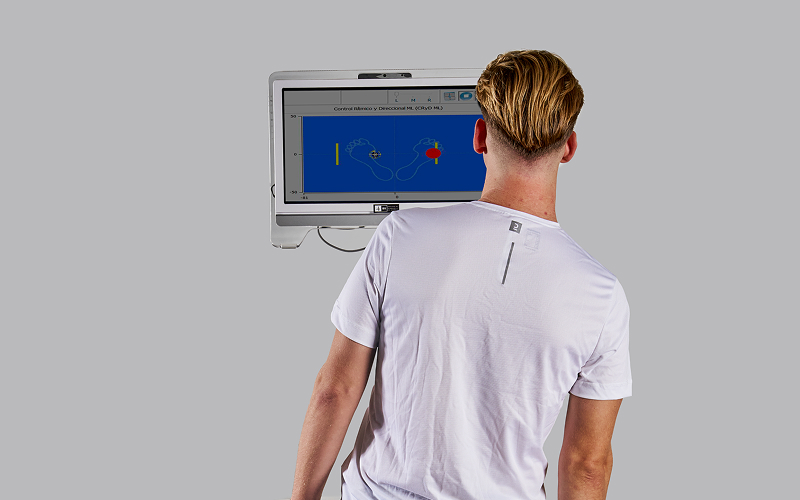Artículo
0(0). doi:10.1177/23969873231220218
Introduction: Balance and postural control impairments are common in stroke patients, increasing fall risk and limiting their daily and social activities. Current research lacks comprehensive studies evaluating the efficacy and long-term effects of task-specific training on balance and postural control among stroke patients, especially when considering biomechanical and posturographic assessments.
Patients and methods: A randomized controlled trial included 63 subacute stroke patients recruited from the outpatient rehabilitation department. Participants were randomly assigned to the MRP group (n=32), receiving task-specific training based on MRP, or the CPT group (n=31), receiving conventional physical therapy. Both groups completed an 8-week intervention (3 sessions/week; 1 h./session). Balance and postural control were assessed at baseline, post-intervention, and 3-month follow-up using the Berg Balance Scale (BBS) and posturography.
Results: The MRP group exhibited significantly larger improvements than the CPT group in both BBS scores (p=0.001, d=2.98, 95% CI [2.25, 3.70]) and Balance Index scores (p=0.001, d=2.83, 95% CI [2.12, 3.53]) after the intervention. These improvements were sustained at 3-month follow-up.
Discussion: The findings suggest that task-specific training based on MRP is more effective than CPT for improving balance and postural control. The MRP intervention may enhance the motor learning and neural plasticity of the patients, leading to better functional outcomes. However, the study's open-label design represents a limitation, and further research with adequate blinding is needed.
Conclusion: Task-specific training based on MRP was superior to CPT for improving balance and postural control in subacute stroke patients. Participants undergoing MRP exhibited significant and clinically relevant improvements that were sustained at follow-up.

Universitat Politècnica de València
Camino de Vera s/n
46022, Valencia (España)
+34 96 111 11 80
atencion.cliente@ibv.org
El Instituto de Biomecánica (IBV) es un centro tecnológico que estudia el comportamiento del cuerpo humano y su relación con los productos, entornos y servicios que utilizan las personas. Fundado en 1976, el instituto es un centro concertado entre el Instituto Valenciano de Competitividad Empresarial (IVACE) y la Universitat Politècnica de València (UPV).